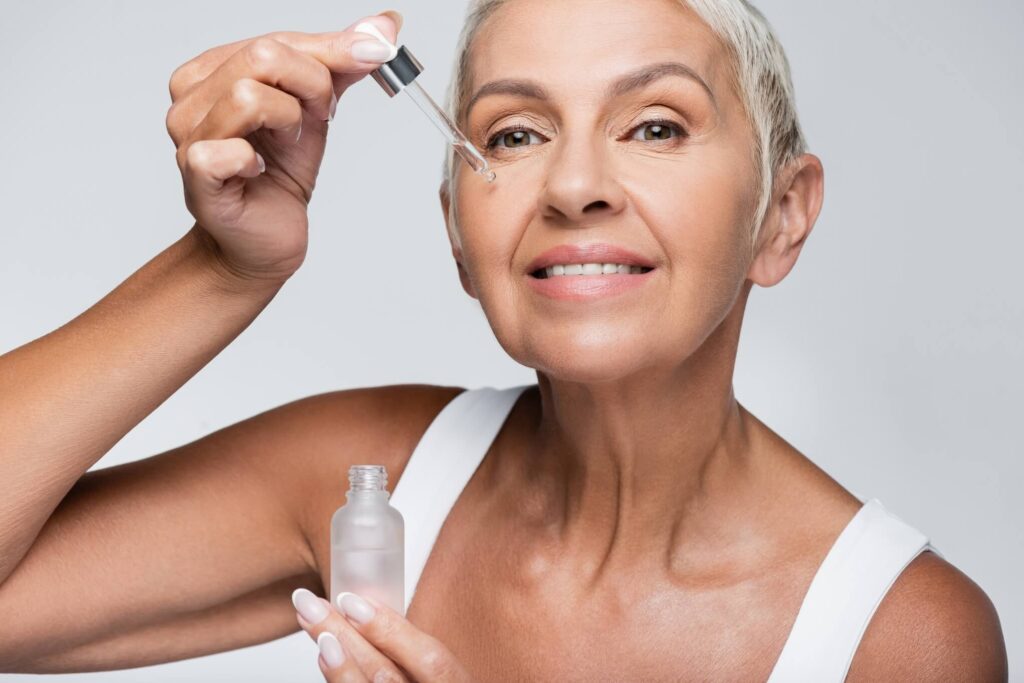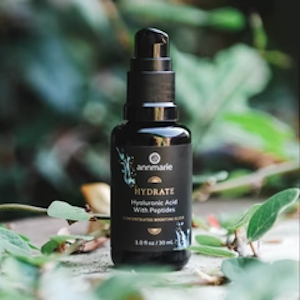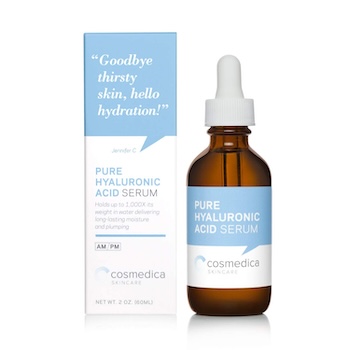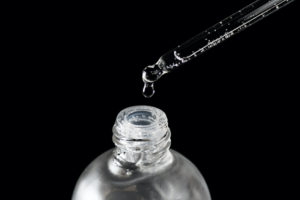Hyaluronic acid has long been a staple ingredient in skincare products, popular for its hydrating properties. Recent innovations have allowed it to move beyond simple hydration to offer a wider range of more targeted benefits. This means that, even if you have grown accustomed to seeing it listed on skincare products, it might now be worth another look.
Advancements in Hyaluronic Acid Formulations
Traditional formulations of hyaluronic acid limited its use to surface-level hydration. It was less effective at moisturising deeper into the skin. Newer advancements have allowed smaller molecules to be formulated that are better able to penetrate into the skin. Researchers have also been able to construct networks of hyaluronic acid molecules that are more stable and better able to retain water.
The effect of these improvements is that hyaluronic acid treatments can now penetrate more deeply into your skin to deliver hydration where it is most beneficial. This nourishes your skin from within and improves moisture retention, but it also stimulates collagen production. This all helps to rejuvenate your skin and make it more resilient.
Hyaluronic Acid and Collagen
The ability of new hyaluronic acid formulations to encourage collagen is one of their most interesting anti-ageing abilities. Collagen is a protein that plays a crucial role in giving your skin its elasticity and firmness. Collagen levels gradually decline as we get older, which can leave the skin vulnerable to fine lines and wrinkles.
By hydrating more deeply into your skin, newer hyaluronic acid formulations not only preserve the skin’s barrier function but also support greater collagen production. This helps to combat signs of ageing associated with dryer skin and lower collagen levels. Skin can look plumper, smoother, and more youthful.
Targeting Skin Concerns with Hyaluronic Acid
The innovations in how hyaluronic acid is formulated in skincare products have increased its effectiveness when used in combination with other familiar ingredients, like antioxidants or peptides.
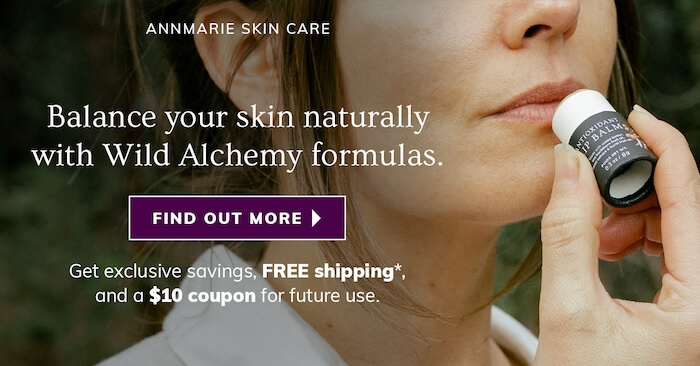
Antioxidants, like vitamins A and E, help to neutralise harmful molecules called free radicals. Free radicals can otherwise damage your skin cells through a process called oxidative damage and accelerate the ageing process. Combining antioxidants with hyaluronic acid helps not only to reduce oxidative damage but also to protect the skin from environmental stressors like pollution or UV rays in sunlight.
Peptides are small proteins that play an important role in firming skin and supporting collagen production. Applying peptides after an application of hyaluronic acid helps the peptides to penetrate more effectively into your skin. This combination helps to nourish your skin, targeting dry skin in particular, and to support the collagen production that protects your skin’s firmness and reduces the appearance of fine lines and wrinkles.
Beyond the Lab: Real Products Using Hyaluronic Acid
These innovations in hyaluronic acid and its use with other skincare products have moved beyond research and development. Products are available from a range of respected skincare brands, like Hyalu B5 Serum from La Roche-Posay or Neutrogena’s Rapid Wrinkle Repair Serum. The versatility of hyaluronic acid in skincare means that products can be targeted at overall skin tone and texture or at alleviating dryness, sensitivity, or acne.
Hyaluronic acids’s ability to deliver hydration and replenish your skin’s protective barrier helps with dry skin. It is a gentle and non-irritating treatment that suits sensitive skin types and can be combined with ingredients like aloe vera or chamomile to sooth and calm your skin.
The light texture of hyaluronic acid will provide moisture without clogging pores, which is helpful for acne-prone skin. Salycylic acid and tea tree oil are often used to reduce oil production, clear bacteria, and soothe inflammation. In tandem with hyaluronic acid, they help to contain acne breakouts while maintaining hydration. The Hydrating Facial Cleanser from CeraVe is formulated with hyaluronic acid. It is intended to cleanse your skin without damaging its natural hydration, making it a good option if you have dry, sensitive, or acne-prone skin. Similar products are available from Glow Recipe, PCA Skin, or The Ordinary.
These innovations in the formulation and blending of hyaluronic acid have extended its usefulness. Beyond hydration at your skin’s surface, hyaluronic acid’s versatility can now deliver deeper hydration and can work with other ingredients to support collagen production and to combat dryness and irritation. All of this will help to give your skin more firmness and suppleness, and a more healthy and youthful appearance.
YOU MAY ALSO LIKE:
YOGA FOR THE KAPHA SEASON
In Ayurveda, spring is known as Kapha season. As the earth starts to thaw after the colder months, so do our…
START A MINIMALIST LIFESTYLE WITH THESE 3 KEY STEPS
When someone says ‘minimalism’ to you, what springs to mind? An intimidatingly chic living space in an interior design magazine? A…
A BEGINNER’S GUIDE TO MINDFULNESS: TIPS & COMMON MYTHS
“Mindfulness” is a term that’s used a lot these days, and mindfulness-based programs are all the rage: in the workplace, in…
WHY SOME CALL TURMERIC A MIRACLE SPICE
Turmeric is a spice that is most widely recognized for its vibrant orange hue. Traditionally used in Asian cuisine such as…
AMAZING BENEFITS OF “TRUE” COLLOIDAL SILVER
Will the true colloidal silver please stand up? Read more to find out how to sniff out an imitation, ineffective silver…
4 HEALING TRADITIONS FROM AROUND THE WORLD TO BOOST YOUR HOLIDAYS
With the holidays upon us, many people are experiencing increased levels of stress and busyness. Seasonal gatherings with family and friends,…

